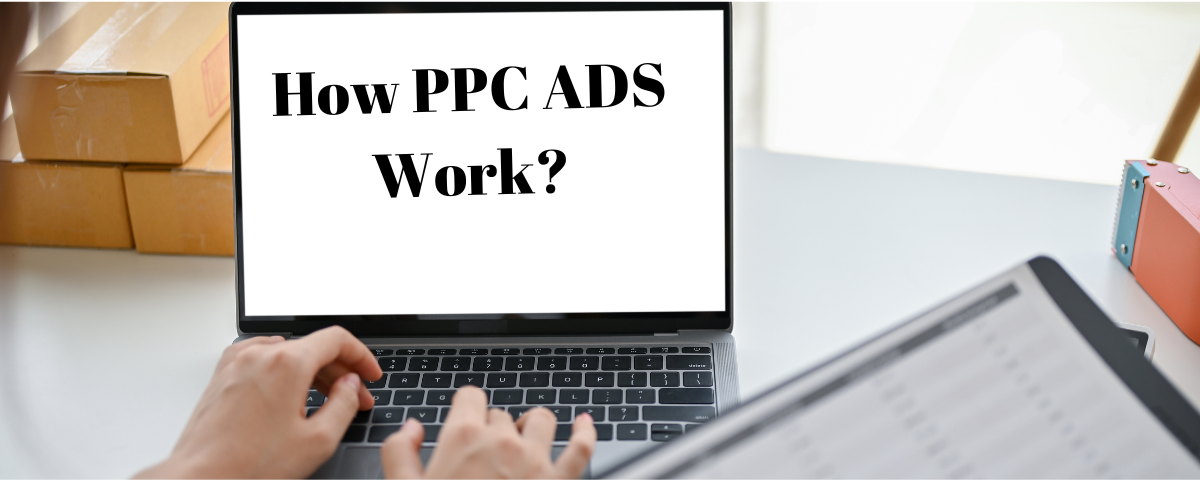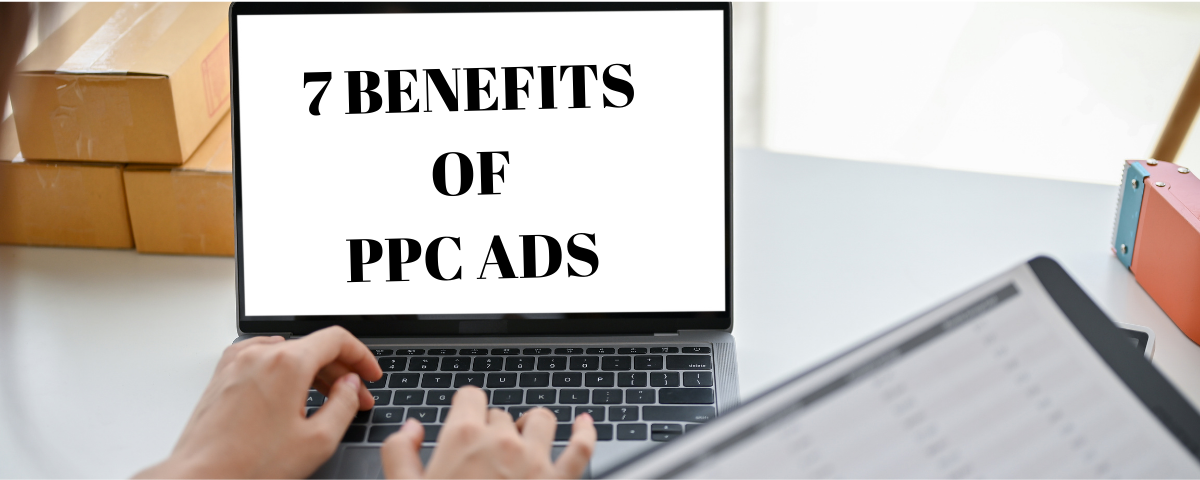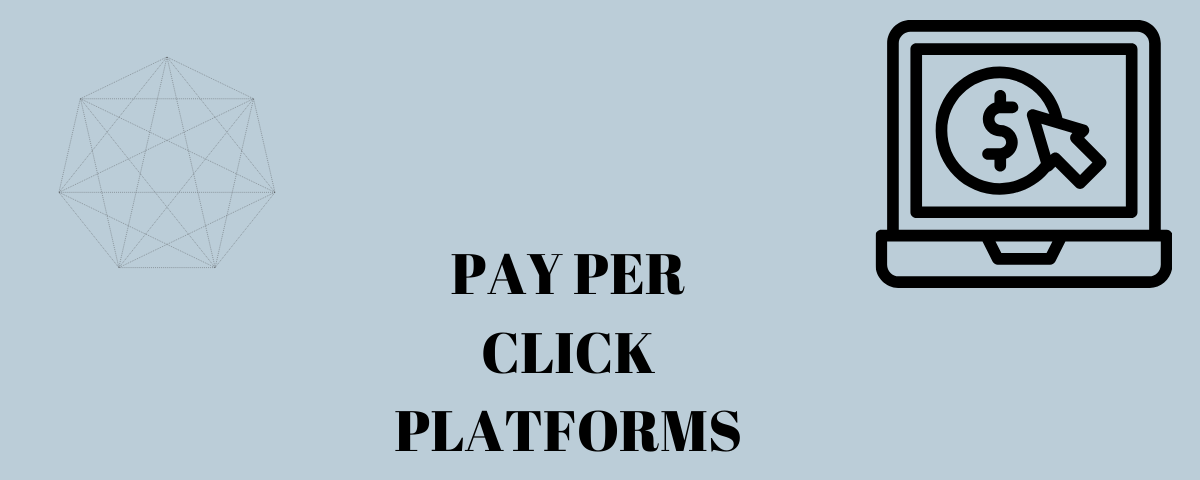Reaching target audiences online in a dynamic and results-driven manner is possible with pay-per-click (PPC) advertising. Under the PPC ad strategy model, advertisers are charged a fee each time one of their ads is clicked.
However, it is important to be aware of the competitiveness of PPC advertising, the need for constant monitoring, and the potential for bidding wars that can drive up costs. Despite these challenges, PPC advertising offers unparalleled control, the ability to test different ads, and the opportunity to reach ideal customers.
By using this technique, organizations and companies can purchase website visits instead of gaining them naturally. This article will cover everything you need to know about PPC ads and their benefits.
What are PPC Ads?
PPC stands for pay-per-click ads, as earlier mentioned. It is a subset of digital marketing where the advertisers are charged a certain fee when any user clicks on their ads.
The most common types of pay-per-click ads are those offered by search engines like Google.
Social media platforms like Facebook, Instagram, and Twitter also offer pay-per-click ads through display advertising on websites.
In PPC ads, the advertisers bid on keywords, and their ads show at the top of the search engine result pages when a user searches for those words.
Why is PPC important?
PPC (pay-per-click) advertising is important for several reasons:
Targeted Reach
Get 50% Discount to Master ALL Aspects of Digital Marketing That Can Earn You $2,500 - $5,000 a month (Even if you are a complete beginner!)
Our students that intentionally implement what they learn from our digital marketing course make back the entire course fee within a single month or more after completing our course because our course gives them many income generating options with unlimited earning potential with no age or location barrier. The best part is no technical skills are required.
An opportunity to change your lifestyle and make money working from anywhere in the world. The results our students get from our digital marketing course prove this could be applied to any market or country and that it is designed for any skill level and work background.
*By signing up, you agree to our privacy policy and terms of service.
It allows businesses to reach highly specific audiences based on various criteria, such as demographics, keywords, topics, and user behavior, ensuring that ad spend is not wasted.
Fast and Measurable Results
PPC offers quicker results than an SEO campaign and provides extensive data and analysis, making it easy to measure and track ad performance. This allows for quick adjustments to achieve marketing goals.
Cost-Effectiveness
Advertisers only pay when someone clicks on their ad, making it a cost-effective way to drive immediate traffic to a website.
Integration with Other Marketing Channels
PPC works well with other marketing channels and can have a positive impact on businesses and brands.
How Does PPC Ads work?
PPC advertising is a process in which advertisers place bids on keywords, and users see their ads according to the relevancy, quantity, and quality of the ads. PPC ads work by following these steps:
Auction process
PPC uses an auction-style bidding system for its operations. By placing bids on keywords that are pertinent to their intended audience, advertisers fight for ad placement. Every time a user searches or visits a website within the ad network, an automated auction is held.
Choosing Keywords
Marketers select particular keywords they wish to be linked to in their advertisements. These keywords are representations of words or phrases that people may use in their product or service searches. The effectiveness of a PPC campaign is mostly dependent on the relevancy and selection of keywords.
Determining Ad Rank
There is more to an ad position than just the highest bid. The combination of bid amount, ad quality, and predicted click-through rate (CTR) determines the ad rank.
For instance, Google has a Quality Score metric that takes into account things like past performance, landing page experience, and ad relevancy.
Advertisement Display
The ad auction starts when a user types a search query that contains the selected keywords.
To decide which ads to display and in what sequence, the search engine or platform considers bids, ad relevancy, and other variables. The chosen advertisements show up in certain places within the ad network or on the search engine results page (SERP).
User clicks
The advertiser receives payment if a user finds an advertisement to be relevant and clicks on it. This explains the name, “Pay-Per-Click.” The cost per click (CPC) is the price paid for each click and is determined by the level of competition, bid amounts, and campaign quality.
Landing page
The user is taken to a specific landing page on the advertiser’s website when they click on the advertisement. To give users an effortless and relevant experience, the landing page should match the content of the advertisement. The landing page should have a good design, as this increases the chance of conversion.
Monitoring Conversions
Conversion monitoring is a tool used by advertisers to assess the effectiveness of their campaigns. This entails monitoring user actions—like buying something, completing a form, or signing up for a service—that occur after they click on an advertisement.
Advertisers can evaluate the success of their PPC efforts and make improvements to their campaigns with the aid of conversion data.
Constant Optimization
PPC advertising campaigns need constant optimization.
To enhance the campaign as a whole, advertisers review performance indicators, modify bids, polish ad copy, and implement strategic adjustments. Constant optimization guarantees that the campaign is in line with the company’s goals and that the budget is used efficiently.
Benefits of PPC Ads
Instant Visibility
Pay-per-click ads guarantee instant visibility. It pushes your ads to the top of Google search engine result pages (SERPs). This is essential for small businesses that find it difficult to obtain organic results and are struggling to be seen in a crowded market.
PPC is a good way to pass search engine optimization practices and rank on Google search results.
Instant visibility leads to increased traffic and conversions for the organization.
Measurability
This is another excellent feature of pay-per-click ads. It monitors cost per conversion, click-through rates, and conversion rates.
This feature allows you to continuously try to improve the advertising strategy by ensuring that the ad is relevant by keeping tabs on trends. It allows a user to see the amount spent and if it is generating a profit or loss. It is good for businesses as it guarantees a high return on investment. For more information on Google analytics measurable results, see here.
Wider reach
PPC advertising allows your business to have a wider reach and target a larger audience. There are millions of users on search engines like Google, and when their search contains a keyword that is related to or similar to the keywords in your ads, they will get to see your ads.
With this broad reach, you may target both locally and internationally, exposing your organization to a wide range of consumer habits, interests, and demographics.
PPC also has the ability to target a specific audience, and by doing so, it provides important and efficient ad placement.
New businesses finding their footing in new markets will find this feature to be really beneficial.
Budget Friendly
PPC ads have no fixed amount the user is supposed to pay for a bid or how much to pay for an ad or campaign. It is done according to their discretion and their budget.
This is really good for small businesses; if there was a fixed price, they may have found it difficult to pay, but now they can compete with larger companies without having to spend so much.
PPC allows each business the flexibility to create their own ad budget based on their financial abilities The measurability of PPC ads allows you to know if your spending is leading to a profit or a loss and how that can be adjusted.
Google Ads tool access
Google provides access to tools for creating an effective ad campaign. Keyword planner is one of those tools.
You can explore keywords with Google’s Keyword Planner, which provides information on search volumes, which is the number of people that search for that keyword monthly, competition (how difficult it will be for that keyword to rank in Google search engine results), and how much the bid for the keyword will cost.
With the use of this tool, you can determine which keywords are most important to target and make sure the correct people see your ads and speak directly to their needs, which leads to higher conversion rates. It also helps you organize your campaigns and ad groups for the best results.
Increases profit, sales, and leads
When your ads are viewed by potential clients, it increases the chances of leads, conversions, and profit.
PPC will always drive relevant traffic to your webpage, so as long as the conversion strategy is good and you offer great products and services, clients will be converted and more sales will be made. The organization’s revenue will increase.
An organization can spend $1500 on ads and make over $4500 in revenue.
Targeting High-Intent Audiences
PPC allows many companies to connect with customers who are actively searching for a particular good or service by targeting users with more specific needs that meet their objectives.
This can lead to increased conversion rates because it focuses on customers who are most likely going to make a purchase, rather than those who are unsure and are just checking out the product. Thus shortening the sales cycle and demonstrating business growth.
Types of PPC advertising
There are several types of PPC advertising, including:
1. Search Ads
The most common type of PPC ad is a paid search ad. Advertisers choose keywords that they want their ads to show on; consequently, the ad appears when a user searches for that keyword.
2. Display Ads
Display advertising is another form of paid advertising; moreover, it involves advertising your product or service.. The advertiser’s ads appear in front of users who have shown an indication that they may be interested in the product or service.
3. Traditional Pay-Per-Click (PPC) Ads
These are all-text ads that appear at the top of search results above organic listings.
Social Media Ads: Social media platforms like Facebook, Twitter, and LinkedIn offer paid advertising options that allow businesses to target specific audiences.
4. Remarketing Ads
Remarketing ads allow businesses to target users who have previously interacted with their website or social media profiles. It encourages them to return and complete a desired action.
5. Video Ads
Businesses frequently use video ads, a popular form of PPC advertising, on platforms such as YouTube. This ads engage the viewers with audio-visual storytelling and messaging.
6. Shopping Ads
E-commerce businesses utilize shopping ads to promote their products on search engines. It leads to increased visibility and reach among potential customers actively searching for products, higher click-through rates and conversion rates. c
7. App Ads
App ads are used to promote mobile apps on search engines and social media platforms. These ads drive app installs, engagement, and user acquisition. Based on demographics, interests, and behavior, they ensure that ads are shown to relevant users by offering precise targeting options. Additionally, app ads can generate higher conversion rates compared to other advertising formats, resulting in increased app downloads and revenue for businesses.
Types of Pay-Per-Click Platforms
The top PPC platforms in 2024 include:
1. Google Ads
Google Ads, also known as Google AdWords, is the largest pay-per-click (PPC) platform globally, offering search and display ads. It enables businesses to display ads on Google search engine result pages, reaching a vast audience and driving relevant, qualified traffic to their websites.
2. Facebook Ads (Meta Ads):
Facebook Ads, also known as Meta Ads, is a popular platform for social media advertising that allows businesses to create highly targeted campaigns. With access to a vast amount of user data, Facebook Ads enables marketers to target specific demographics, interests, and behaviors.
3. Microsoft Ads
A significant player in the PPC space, providing ads on the Bing search engine and other Microsoft properties.Microsoft Ads is an effective platform for businesses to reach a new audience and tap into a large pool of potential customers.
4. Instagram Ads:
With a large user base, Instagram is a valuable platform for visual advertising. Instagram allows its users to promote their business using Instagram feeds and stories
5. LinkedIn Ads:
Known as “Facebook for professionals,” LinkedIn offers a unique platform for B2B advertising. LinkedIn ads allow businesses to connect with professionals by targeting the ads to the LinkedIn feeds and messaging.
6. YouTube Ads:
YouTube Ads are a powerful tool for reaching a wide audience through video advertising. It uses Google data to show ads to the right people at the right moments, making it easy to reach valuable customers by age, location, interests, and more.
How to Optimize Your Pay-Per-Click Ads
To optimize your pay-per-click (PPC) ads, consider the following strategies:
1. Keyword Optimization:
Ensure your ads are targeting the most relevant keywords to reach your audience effectively.
Compelling Ad Copy: Create engaging and persuasive ad copy that encourages users to click on your ads.
2. Landing Page Optimization:
Direct users to a relevant and high-converting landing page that aligns with the ad’s messaging.
3. A/B Testing:
Continuously test different elements of your ads, such as headlines, ad copy, and visuals, in order to identify the most effective variations.
4. Negative Keywords:
Use negative keywords to prevent your ads from showing for irrelevant searches, thus improving the quality of your traffic.
5. Bid Optimization:
Regularly review and adjust your bids to ensure you’re getting the best possible return on investment.
6. Conversion Tracking:
Implement conversion tracking to measure the success of your campaigns and identify areas for improvement.
By implementing these strategies, you can optimize your PPC ads to improve their performance and drive better results.
Differences between PPC, SEM and SEO
PPC, SEM, and SEO are all related to search engine marketing, but they differ in their approach and goals.
PPC (Pay-Per-Click) is a form of online advertising where advertisers pay each time a user clicks on one of their ads. SEM (Search Engine Marketing) is a broader term that encompasses all forms of marketing that involve search engines, including PPC and SEO.
SEO (search engine optimization) is the process of optimizing a website to rank higher in organic search results.
While PPC and SEM focus on paid advertising, SEO focuses on improving organic search rankings. In summary, PPC and SEM are forms of paid advertising, while SEO is focused on improving organic search rankings.
Conclusion on PPC ads
Adopting PPC advertising is not only a wise decision but also a strategic requirement in today’s digital-first world.
Its effectiveness in generating targeted traffic, optimizing exposure, and producing measurable business results is evident from the listed advantages.
Using PPC’s benefits gives firms a strategic way to target the correct audience, maximize marketing expenditures, and realize a significant return on investment as they navigate the competitive online market.
FAQS on PPC ads
Are PPC ads cost-effective for small businesses?
PPC gives small firms a competitive advantage, allowing them to outperform their larger rivals and raise brand awareness even on a tight marketing budget.
Because PPC advertising offers accurate targeting, measurable results, and budget control, it’s an affordable solution for small businesses. Small businesses can accomplish immediate and noticeable outcomes by focusing on target audiences, measuring campaign performance, and setting flexible budgets.
How accurate is PPC ads in target advertising?
PPC advertising enables companies to target particular demographics, interests, regions, and behaviors with a high degree of accuracy. This exact targeting ensures that your advertisements reach the most relevant audience.. This raises the possibility that they will draw in truly interested clients and raise conversion rates.
With the help of these tools, advertisers can target their audience more accurately and make sure that their advertisements appear to individuals who are actively looking for relevant content and who fit certain demographics, hobbies, and online habits.
More resources
Facebook Ads for Nigerian Businesses: How to set up your Facebook Ads
Mistakes and Solutions for Converting More Site Visitors to Sales and Leads







